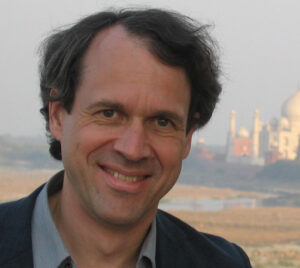
Currently the Ernest Bernbaum Professor of Literature and Chair of the Department of Comparative Literature at Harvard University, David Damrosch began his career in the study of a much earlier iteration of world literature. In his 1987 book The Narrative Covenant: Transformations of Genre in the Growth of Biblical Literature, Damrosch investigates the influence of ancient Near-Eastern literature (such as the Epic of Gilgamesh) on the narrative structure of the Hebrew Bible. This desire to explore literary eclecticism eventually led Damrosch to begin to question the organization of the modern university, resulting in books like We Scholars (1995) and Meetings of the Mind (2000), a comic memoir of Damrosch’s struggle to meaningfully collaborate with three colleagues of vastly different critical and personal inclinations. Beginning with What is World Literature? in 2003, Damrosch has turned his attention to the “problem” of world literature. Although the concept of world literature may have its origins in Goethe’s airy fantasies of “poetry [as] the universal possession of mankind, revealing itself everywhere and at all times in hundreds and hundreds of men,” Damrosch himself gets down to the brass tacks of how to realize a world literature: anthologies, freshman survey courses, and books for the lay reader. To paraphrase Gramsci, Damrosch evinces a pessimism of the Norton’s, but an optimism of the will.
The following interview was conducted in person in David Damrosch’s office at Harvard, and edited for clarity, structure, and length.
Dylan Suher
https://www.asymptotejournal.com/interview/an-interview-with-david-damrosch/

Founded as a graduate program in 1904 and joining with the undergraduate Literature Concentration in 2007, Harvard’s Department of Comparative Literature operates at the crossroads of multilingualism, literary study, and media history.
© 2023 President and Fellows of Harvard College
Sign up to receive news and information about upcoming events, exhibitions, and more